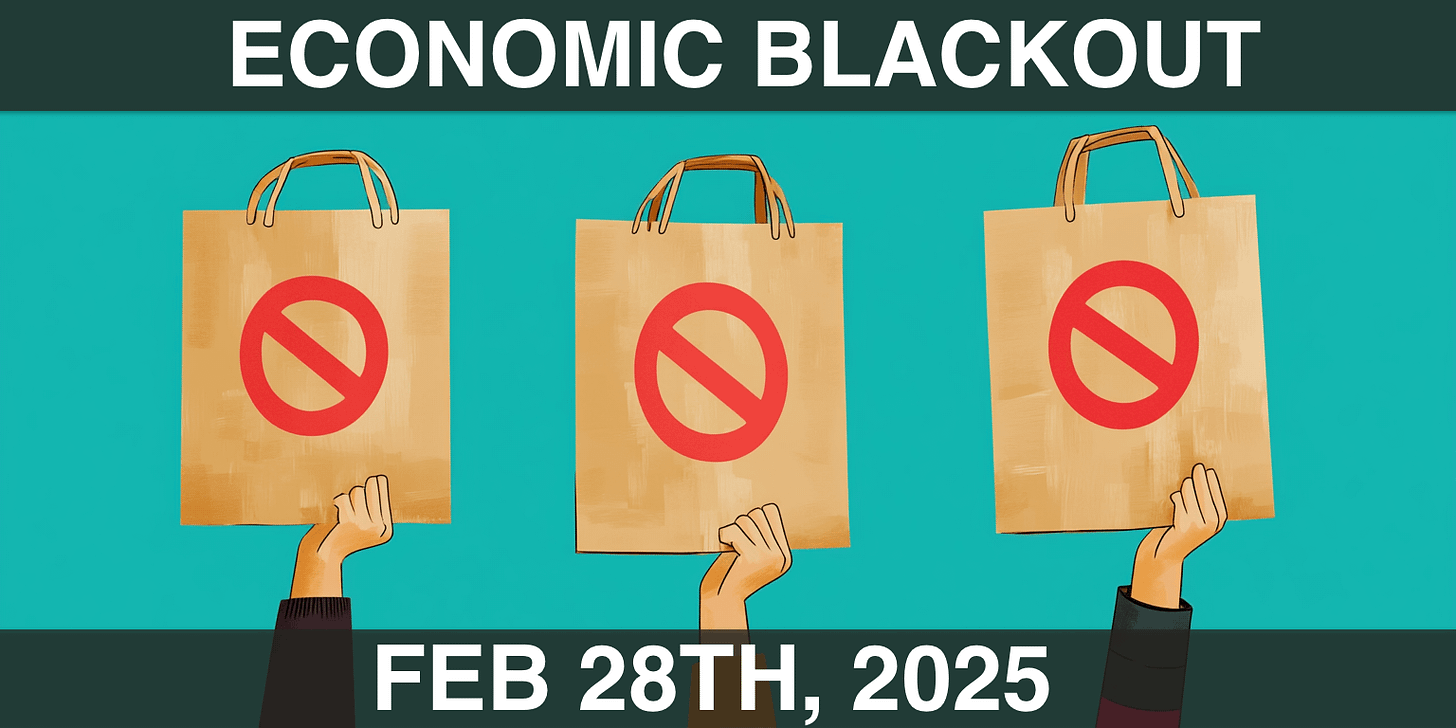Money has always been a language of power. And today, February 28, is the day we decide what it says.
For too long, corporations have dictated the economy, bending to political winds—especially those stirred by figures like Donald Trump—as if his influence outweighs the collective will of the people who sustain their businesses. But economic power doesn’t come from politicians or boardrooms—it comes from us.
The February 28 boycott isn’t just about making a statement. It’s about taking control. It’s about refusing to participate in an economic system that treats consumers as passive participants rather than the force that drives it. Every time we swipe a card, tap a screen, or pay a bill, we shape the economy. The only question is: whose interests are we serving?
If enough of us withhold our spending today, we send a clear message: corporations exist to serve people, not political agendas. And when we act collectively, even the most powerful businesses must take notice.
Who Really Holds the Power?
Corporations don’t wait to be told where the power is shifting—they anticipate it. Right now, many are preemptively aligning with Trump, assuming that staying in his good graces is the safest way to protect their bottom line. But they aren’t accountable to him. They are accountable to us.
History proves that when people push back, corporations listen. The Montgomery Bus Boycott reshaped public transportation. Anti-apartheid boycotts forced companies to sever ties with South Africa. More recently, Uber faced backlash for breaking a taxi strike, leading to over 200,000 deleted accounts in just days.
This kind of action works because corporations aren’t guided by ethics or values—they are guided by financial consequences. And in a time when businesses believe that political alliances matter more than consumer trust, it’s critical to remind them who actually keeps them afloat.
Does One Day Really Matter?
A single day might seem insignificant. A blip on the financial radar. But history tells us otherwise.
When Trump issued his Muslim ban in 2017, thousands of people flooded airports in protest. It wasn’t just an expression of outrage—it led to immediate legal challenges, forcing the administration to revise some of its harshest measures. The impact wasn’t in the hours spent at airports; it was in the pressure applied to decision-makers.
Economic resistance works the same way. It’s not just about today’s lost revenue—it’s about the disruption it creates. A single day of reduced spending might not bankrupt a corporation, but it unsettles the predictability they rely on. Stockholders, analysts, and executives pay attention to unexpected financial drops. And if enough of us disrupt business as usual today, it forces corporations to ask why. It reminds them that consumers are paying attention.
And most importantly, it sets the stage for repeated, coordinated action.
What Happens After Today?
A single day of economic resistance is powerful—but it’s only the beginning. The February 28 boycott is meant to be a wake-up call, a reminder that consumers are not passive. But beyond today, we must continue to shift the way we spend, demanding more accountability from corporations that prioritize political power over the people who sustain them.
Here’s how we make this movement last:
Support businesses that align with your values. Seek out companies that prioritize fair wages, ethical labor practices, and corporate transparency.
Hold corporations accountable. Engage with brands on social media. Demand clear stances and responsible business practices.
Embrace collective action. Economic resistance doesn’t have to be sporadic—ongoing movements, like supporting local businesses or divesting from unethical corporations, create lasting impact.
Money has always been a language of power. Today, let’s remind them—loudly, collectively, and without apology—who really holds it.


